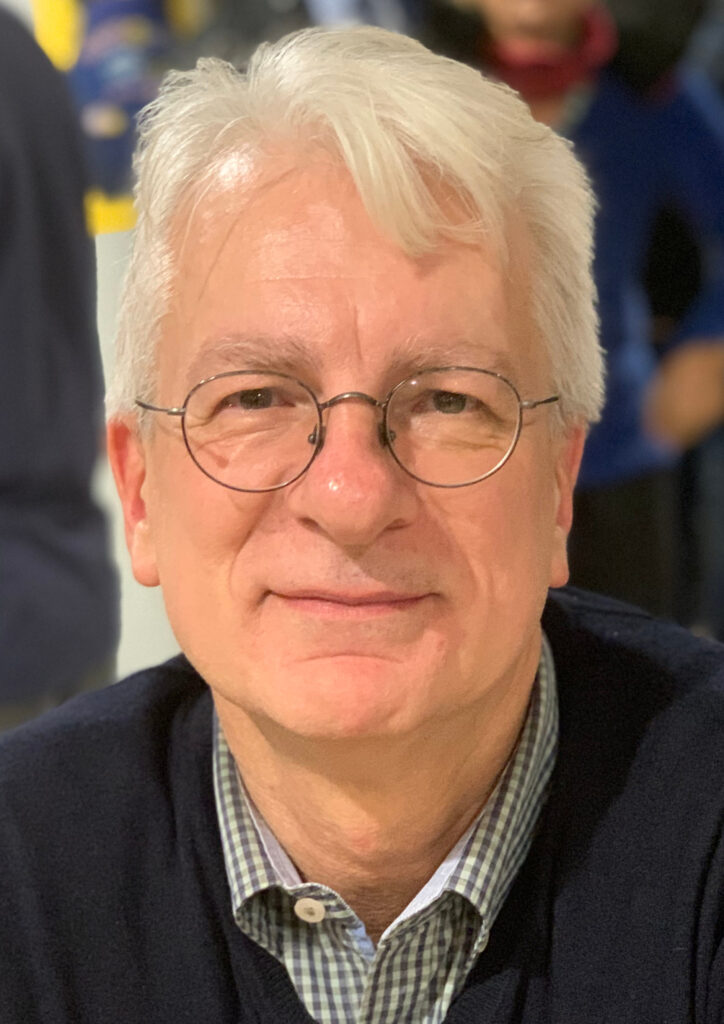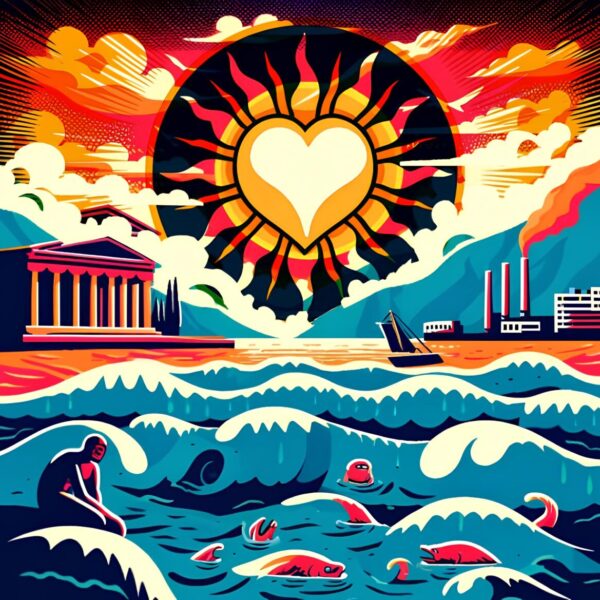May 1st, a public holiday and symbol of workers' struggles, marks one of the rare annual pauses of the print press. Printing houses at a standstill, newspapers absent from kiosks: a well-established tradition in several Mediterranean countries, where the modalities vary, but where the silence of the press underscores the strength of the social message. Without deviating from tradition, we nonetheless could not resist and are inviting you to rediscover one of the first articles published online at the launch of 22-med.
By Gilles Vanderpooten and Maëlle Widmann, journalists at Reporters d’Espoirs
The Mediterranean is the cradle of all our cultures
Giving a voice to a resident of the Mediterranean world to launch M22? We preferred to surprise you! Dominique Bourg may be geographically distant, but he offers a unique perspective, as a philosopher and professor of environmental sciences, on its challenges. Meet a Swiss passionate about Egyptology, in love with Italy, and a member of the Royal Academy of Morocco.
My first experience of the Mediterranean was the discovery of Italy. At 6 years old, I went on vacation to the coast with my parents. At 22, I embarked on a journey with my brother from Florence to Pompeii, passing through Siena and Naples. It was through these travels that I became aware of the magnificence of Mediterranean landscapes.
I also cultivated a passion for Egyptology at that time, although I unfortunately never had the opportunity to go to Egypt. I was recently invited to be a member of the Royal Academy of Morocco, which aims to promote culture and reflection with an international openness. I will hold my inaugural lecture there next autumn.
The Mediterranean, cradle of all our societies and religions
Finally, my intellectual journey has been punctuated by thinkers from the Mediterranean region.
The Mediterranean is a crossroads of cultures that have met for better and for worse.
The worst is the violence of the "basic" monotheisms, the texts read literally, as illustrated in our contemporary era by Islamist terrorism – whose victims are predominantly Muslim. In the past, it was the Crusades and later colonial enterprises.
The best is the way different cultures manage to enrich each other. For example, philosophy (Aristotle), algebra, etc., were imported from that great civilization known as Islam. I also believe that we would have much to gain by rediscovering each other, primarily by conducting cross-readings of our great mystics, from the Persian poet Rûmî to Saint Francis of Assisi inspired by the Bible, through the Islamic thinker Ibn Arabi. Our great mystics have expressed the most sublime aspects of our civilizations, love and peace, at the heart of brutal eras. Not being Muslim does not prevent me from being moved by the recitation of the Quran – as heard, for example, in the film The Cairo Conspiracy. I dream of a union of all reasonable people who want to counter violence and uphold ecological values. For religious texts carry within them the respect for the planet: to respect God's creatures, what is it if not to defend nature and thus be an ecologist? A renewed, non-violent spirituality can bring us together to survive – because that is indeed what it is about now – in the face of the climate and ecological threat.
Europe – Mediterranean: an "agri-cultural" partnership to face the ecological crisis
The ecological forecasts are alarming. In 20 years, 1 billion people will no longer be able to live in their current space. At 27-28 degrees of average annual territorial temperature, population density drops; at 29-30°, there is no one left. With an expected temperature rise of 2 degrees by 2040-50, some countries will experience 200 to 300 days of humid heat per year, with increasing difficulty in food production, etc., the difficult events to manage are likely to become unmanageable.
The Mediterranean is a particularly sensitive area. The danger is the death of the sea. This body of water that gives its name to this region of incredible wealth is facing many perils. I believe it is essential to bet on a crossing of our cultural roots and to partner with all the countries around it. The foundations for establishing an agri-cultural partnership exist: agroecological practices can help us move towards more resilient agriculture that fosters a different relationship with living beings than conventional agriculture, the harms of which we know well. We have many experiences to share. Local initiatives are a guarantee of the future.
It should be noted that a country like France has a good position, at the border between Europe and the Mediterranean. It can easily act as a mediator for these partnerships, both due to its geographical position and the spiritual and cultural roots its inhabitants share with this beautiful region, along with the intellectual talents coming notably from the Maghreb. That is why I am confident in the ability of Europeans and Mediterraneans, if they act together, to help avoid a +3 degree scenario.
And, while the ecological outlook is not bright, here are two remedies that personally help me manage eco-anxiety: humor, and above all, friendship!

Dominique Bourg is a Franco-Swiss philosopher teaching at the University of Lausanne (Switzerland), now honorary. He primarily focuses on environmental issues, from concrete aspects to metaphysical challenges. As a writer, he has notably published Une nouvelle terre. Pour une autre relation au monde with Desclée de Brouwer.
